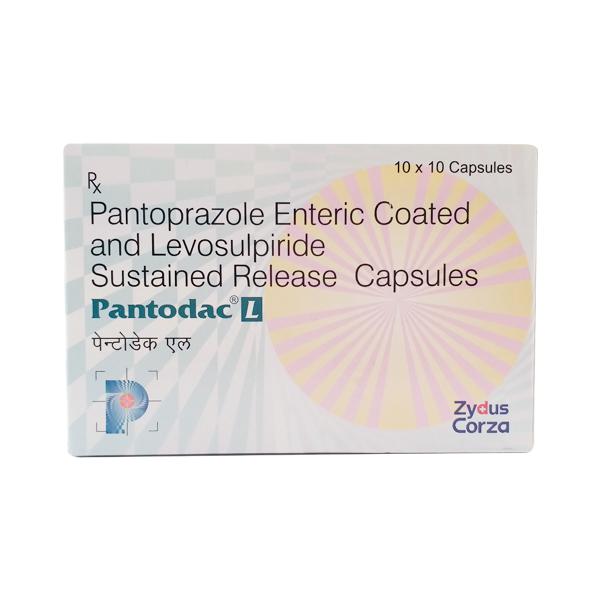rumalef LEFLUNOMIDE
Introduction to Rumalef
Rumalef is a medication primarily used to treat certain autoimmune conditions. It helps manage symptoms and slow the progression of diseases like rheumatoid arthritis. By targeting the immune system, Rumalef reduces inflammation and joint damage, providing relief to those affected by these chronic conditions.
Composition of Rumalef
The active ingredient in Rumalef is Leflunomide. This compound works by suppressing the immune system to control inflammation and prevent further joint damage.
Uses of Rumalef
- Treatment of rheumatoid arthritis
- Management of psoriatic arthritis
- Relief from symptoms of ankylosing spondylitis
Side Effects of Rumalef
Common Side Effects:
- Diarrhea
- Liver problems
- Hair loss
- Rashes
Serious Side Effects:
- Liver damage
- Weakened immune system
- Reduced bone marrow activity
- Severe infections
- Serious skin conditions
Precautions of Rumalef
Rumalef should not be used during pregnancy or by individuals with severe liver problems. Regular blood tests are necessary to monitor your health while on this medication. If you experience serious skin reactions, persistent skin ulcers, or low blood counts, stop taking Rumalef immediately and consult your doctor.
How to Take Rumalef
- Take Rumalef as an oral tablet.
- The initial dose is usually 100 mg per day for the first 3 days.
- Followed by a lower dose of 20 mg per day for ongoing treatment.
- Always follow your doctor's instructions regarding dosage and duration.
Conclusion of Rumalef
Rumalef is an effective medication for managing autoimmune conditions like rheumatoid arthritis. By understanding its uses, side effects, and precautions, patients can better manage their health and improve their quality of life. Always consult with a healthcare professional before starting or stopping any medication.


Can I take Rumalef with other prescription drugs?
Rumalef can interact with other medications, increasing the risk of liver damage or reducing its effectiveness. For example, it can interact with methotrexate, increasing liver toxicity. Always inform your doctor about all medications you are taking to avoid potential interactions. Your doctor may adjust your treatment plan to ensure safety and effectiveness. Regular monitoring and communication with your healthcare provider are essential when taking Rumalef with other medications.

Can Rumalef be taken safely while breastfeeding?
Rumalef is not recommended while breastfeeding. It's unclear if it passes into breast milk, but it may pose risks to the baby. If you're taking Rumalef and want to breastfeed, talk with your doctor about safer medication options. They can help you choose a treatment plan that allows you to nurse your baby safely. Always discuss breastfeeding plans with your healthcare provider before starting Rumalef.

Can Rumalef be taken safely while pregnant?
Rumalef is not safe during pregnancy. It can harm the developing baby, causing birth defects. If you're pregnant or planning to become pregnant, talk with your doctor about safer alternatives. If you become pregnant while taking Rumalef, contact your doctor immediately. They may recommend a procedure to remove the drug from your body to reduce risks to the baby. Always discuss pregnancy plans with your healthcare provider before starting Rumalef.

Does Rumalef affect appetite?
Rumalef doesn't typically affect your appetite. Most people taking this medication don't notice changes in how hungry they feel. If you notice any unexpected changes in your appetite after starting Rumalef, talk with your doctor. For mild appetite changes, try maintaining regular meal times and eating a balanced diet. Your doctor can help determine if any appetite changes you experience are related to Rumalef or if there might be another cause.

Does Rumalef affect mood?
Rumalef doesn't typically cause mood changes. Most people take this medication without experiencing anxiety or agitation. If you notice changes in your mood or mental well-being after starting Rumalef, talk with your doctor. These symptoms might be related to something else, like stress or another health condition. Your doctor can help determine what's causing any mental health changes you experience and suggest appropriate support while continuing your treatment.

Does Rumalef affect sleep?
Rumalef doesn't typically cause sleep problems. Most people take this medication without experiencing changes in their sleep patterns. If you notice changes in how well you sleep after starting Rumalef, talk with your doctor. Sleep problems might be related to something else, like another medication or a different health condition. Your doctor can help figure out what's causing your sleep issues and suggest ways to improve your rest while continuing your treatment.

Does Rumalef cause headaches?
Headaches can occur with Rumalef, but they are not common. If you experience mild headaches, staying hydrated and resting may help. Over-the-counter pain relievers can also be used after consulting your doctor. If headaches become severe or persistent, contact your healthcare provider. They can help determine if the headaches are related to Rumalef or if another cause needs attention. Always report new or worsening symptoms to your doctor.

Does Rumalef cause stomach upset?
Rumalef can cause stomach upset, including nausea and diarrhea. These gastrointestinal side effects are considered common. If you experience mild stomach upset, taking Rumalef with food might help. If symptoms persist or worsen, contact your doctor. They can help determine if the symptoms are related to Rumalef and suggest ways to manage them. Always report new or worsening symptoms to your healthcare provider.

Does Rumalef cause weight gain?
Rumalef can cause weight loss, but this is not common. If you experience mild weight changes, they may stabilize over time. If you notice significant or rapid weight loss, talk with your doctor. They can help determine if the changes are related to Rumalef and suggest ways to manage them. Always report unexpected weight changes to your healthcare provider for proper guidance.

Does Rumalef have adverse effects?
Adverse effects are unwanted reactions to a medication. Rumalef can cause side effects like diarrhea, nausea, and liver issues. These effects vary in frequency and severity. Serious side effects include liver damage and severe infections. If you notice any new or worsening symptoms, contact your doctor immediately. Regular monitoring and communication with your healthcare provider can help manage and mitigate adverse effects.

Does Rumalef have any safety warnings?
Yes, Rumalef has important safety warnings. It can cause liver damage, so regular liver function tests are necessary. Rumalef can also suppress the immune system, increasing infection risk. If you experience symptoms like nausea, vomiting, stomach pain, or jaundice, seek medical help immediately. Not adhering to these warnings can lead to serious health issues. Always follow your doctor's advice and report any concerning symptoms promptly.

Does Rumalef interfere with sexual function?
Rumalef can interfere with sexual function, causing issues like erectile dysfunction or loss of libido. These side effects are considered rare. If you experience mild sexual health side effects, they may improve over time. However, if they persist or worsen, it's important to talk with your doctor. Your doctor can help determine if these symptoms are related to Rumalef and suggest ways to manage them while continuing your treatment. Always communicate any changes in your sexual health to your healthcare provider for proper guidance.

Does Rumalef limit driving?
Rumalef might affect your ability to drive safely. It can cause dizziness or fatigue, which may impair driving. If you feel dizzy or tired after taking Rumalef, avoid driving until these symptoms go away. When you first start this medication, pay attention to how your body responds before getting behind the wheel. Talk with your doctor about any concerns you have about driving while taking Rumalef.

Does Rumalef make it hard to think or concentrate?
Rumalef doesn't typically cause thinking problems or concentration difficulties. Most people take this medication without experiencing changes in mental focus or memory. If you notice problems with your thinking after starting Rumalef, talk with your doctor. These symptoms might be related to something else, such as another health condition. Your doctor can help determine what's causing these issues and suggest solutions while keeping your treatment plan on track.

Does Rumalef make people tired or drowsy?
Rumalef can cause fatigue, but this is not common. Most people take this medication without feeling unusually tired. If you notice you're feeling very sleepy or fatigued while taking Rumalef, talk with your doctor. Your tiredness might be caused by something else, like another medication or an underlying health condition. Your doctor can help determine what's causing your symptoms and recommend appropriate adjustments to your treatment plan.

For how long do I take Rumalef?
Rumalef is usually a long-term medication for managing chronic conditions like rheumatoid arthritis. You'll typically take it every day as a lifelong treatment unless your doctor suggests otherwise. Stopping this medication without medical advice could cause your condition to worsen. How long you'll need this medication depends on your body's response, any side effects you experience, and changes in your overall health. Always talk with your doctor before changing or stopping your Rumalef treatment.

How does Rumalef work?
Rumalef works by inhibiting an enzyme called dihydroorotate dehydrogenase, which is involved in the production of DNA and RNA in cells. This action reduces the proliferation of immune cells that cause inflammation in rheumatoid arthritis. Think of it like slowing down a factory's production line to reduce output. By decreasing immune cell activity, Rumalef helps reduce inflammation and joint damage, improving symptoms and slowing disease progression.

How do I dispose of Rumalef?
Dispose of Rumalef by taking it to a drug take-back program or collection site at a pharmacy or hospital. They will dispose of it properly to prevent harm to people or the environment. If you can't find a take-back program, you can throw it in the trash at home. First, mix it with something undesirable like used coffee grounds, seal it in a plastic bag, and then throw it away.

How do I know if Rumalef is working?
Rumalef is used to treat rheumatoid arthritis, which causes joint pain and inflammation. You'll know it's working when you notice reduced joint pain, swelling, and stiffness. Your doctor will monitor your progress through regular check-ups and blood tests. These tests help assess inflammation levels and overall health. If you see improvements in your symptoms, Rumalef is likely working. Always communicate with your doctor about your treatment progress.

How do I take Rumalef?
Take Rumalef as prescribed by your doctor, usually once daily. You can take it with or without food. Swallow the tablet whole; do not crush or chew it. If you miss a dose, take it as soon as you remember unless it's almost time for your next dose. In that case, skip the missed dose and continue your regular schedule. Do not take two doses at once. Avoid alcohol while on Rumalef, as it can increase the risk of liver damage. Always follow your doctor's specific instructions regarding diet and fluid intake.

How long does it take for Rumalef to start working?
Rumalef may take several weeks to start working. You might notice some improvement in symptoms like joint pain and swelling within 4 to 6 weeks. However, it can take up to 6 months to achieve its full therapeutic effect. Individual factors like your overall health and response to the medication can affect how quickly you notice benefits. Take Rumalef exactly as prescribed for the best results and communicate with your doctor about your progress.

How should I store Rumalef?
Store Rumalef tablets at room temperature, away from moisture and light. Keep them in a tightly closed container to protect them from damage. Avoid storing them in humid places like bathrooms, as moisture can affect their effectiveness. Always store Rumalef out of children's reach to prevent accidental ingestion. Check the expiration date regularly and properly dispose of any unused or expired medication.

Is it safe to drink alcohol while taking Rumalef?
It's best to avoid alcohol while taking Rumalef. Alcohol can increase the risk of liver damage, which is a serious side effect of Rumalef. Drinking alcohol can also worsen other side effects like nausea. If you choose to drink occasionally, limit your alcohol intake and watch for warning signs like jaundice or stomach pain. Talk with your doctor about alcohol use while taking Rumalef for personalized advice.

Is it safe to drink coffee or tea while taking Rumalef?
You can drink coffee and tea while taking Rumalef. There's no known interaction between caffeine and Rumalef. However, caffeine can cause stomach upset, which might worsen any gastrointestinal side effects from Rumalef. Enjoy caffeinated drinks in moderation and monitor how your body responds. If you experience any discomfort, talk with your doctor. They can provide guidance on managing your symptoms while taking Rumalef.

Is it safe to exercise while taking Rumalef?
You can exercise while taking Rumalef, but be cautious. This medication can cause fatigue and dizziness, which might affect your exercise capacity. Start with light activities and gradually increase intensity as tolerated. Stay hydrated and listen to your body. If you feel dizzy or unusually tired, stop exercising and rest. Most people can maintain their regular exercise routine while taking Rumalef, but consult your doctor if you have concerns.

Is it safe to stop Rumalef?
Stopping Rumalef suddenly can cause your condition to worsen. It's used long-term for chronic conditions like rheumatoid arthritis. Stopping without medical advice can lead to a flare-up of symptoms. Always talk with your doctor before stopping Rumalef. They might suggest gradually reducing your dose or switching to a different medication to keep your condition under control. Your doctor will help you make any medication changes safely.

Is Rumalef addictive?
Rumalef is not addictive or habit-forming. It does not cause dependency or withdrawal symptoms when you stop taking it. Rumalef works by affecting the immune system to reduce inflammation, which doesn't lead to addiction. You won't experience cravings or feel compelled to take more than prescribed. If you have concerns about medication dependence, Rumalef doesn't carry this risk while managing your health condition.

Is Rumalef effective?
Rumalef is effective in treating rheumatoid arthritis, which is a condition causing joint inflammation and pain. It works by suppressing the immune system to reduce inflammation. Clinical studies show Rumalef improves joint function and reduces symptoms in many patients. It may take several weeks to notice significant improvements. Regular monitoring by your doctor will help assess its effectiveness for your condition.

Is Rumalef safe for the elderly?
Elderly individuals are more vulnerable to the side effects of Rumalef, such as liver damage and infections. They may also have other health conditions that increase risks. Rumalef can be used in the elderly, but with caution. Regular monitoring and dose adjustments may be necessary. Always consult your doctor about the risks and benefits of Rumalef if you are elderly or caring for an elderly person.

What are Rumalef possible harms and risks?
**Common side effects:** * Diarrhea * Liver problems (elevated ALT and AST enzymes) * Hair loss * Rashes **Serious side effects:** * Liver damage * Weakened immune system * Reduced bone marrow activity * Severe infections * Serious skin conditions (Stevens-Johnson syndrome, toxic epidermal necrolysis) * Severe allergic reactions (drug reactions with eosinophilia and systemic symptoms) * Skin sores * Nerve damage in the hands and feet * Lung problems

What are the most common side effects of Rumalef?
Side effects are unwanted reactions to a medication. Common side effects of Rumalef include diarrhea, nausea, and hair loss. These effects vary from person to person. If you notice new symptoms after starting Rumalef, they might be temporary or unrelated to the medication. Talk with your doctor before stopping any medication. Your doctor can help determine if the symptoms are related to Rumalef and suggest ways to manage them.

What disease or symptom is Rumalef used for?
Rumalef is primarily used to treat rheumatoid arthritis, which causes joint pain and inflammation. It helps reduce symptoms and slow disease progression by suppressing the immune system. Rumalef can also be used for psoriatic arthritis, which is a type of arthritis associated with psoriasis. It is often used in combination with other therapies to manage symptoms and improve joint function. Always follow your doctor's instructions when using Rumalef.

What is Rumalef?
Rumalef is a medication used to treat rheumatoid arthritis, which is a condition causing joint inflammation and pain. It belongs to a class of drugs called disease-modifying antirheumatic drugs (DMARDs). Rumalef works by suppressing the immune system to reduce inflammation and slow disease progression. It can be used alone or with other therapies to manage symptoms and improve joint function. Always follow your doctor's instructions when taking Rumalef.

What is the usual dose of Rumalef?
The usual starting dose of Rumalef for adults is 100 mg once daily for three days, followed by a maintenance dose of 20 mg once daily. Your doctor may adjust the dose based on your response and tolerance. The maximum recommended dose is 20 mg daily. Dose adjustments may be necessary for special populations, such as the elderly or those with liver issues. Always follow your doctor's specific dosing instructions for your health needs.

Who should avoid taking Rumalef?
Rumalef should not be used if you have severe liver disease or are pregnant, as it can harm the baby. These are absolute contraindications. Relative contraindications include having a history of liver problems or being at risk for infections. In these cases, Rumalef may be used only if the benefits outweigh the risks. Always consult your doctor about your medical history before starting Rumalef.
Available in 3 variations

bottle of 30 tablets

strip of 30 tablets

Rumalef 100mg Tablet
strip of 10 tablets













.svg)
